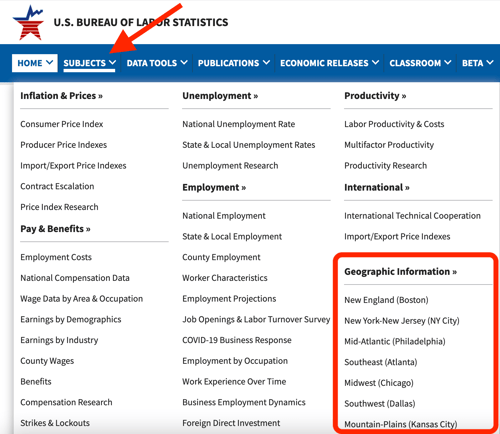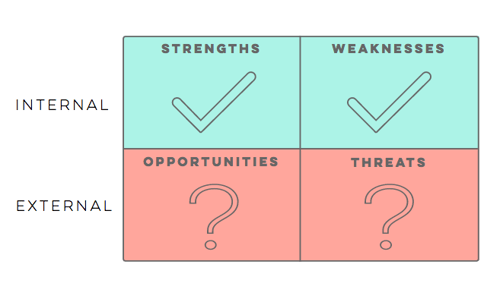Career advice - some of it’s good, most of it’s bad, and yet we all seek it. We spoke with some of the best product marketers about their careers as part of our spotlight series, and here are some of the lessons we learned so far.
Lesson #1: Time is your most precious resource—treat it carefully
There are thousands of articles out there on prioritization and productivity—we’re obsessed with getting more done with less time and resources. However, these product marketers believe you should be very careful when selecting projects you want to take on, and similarly—be as careful in choosing which projects you don’t do.
Elevate your product marketing strategy with this free kit >>
"Think deeply before committing to a project or task. You should be at 80% capacity as much as you possibly can, meaning you keep 20% of your time available for ad hoc projects that will inevitably come up. Think about what committing to something new means for other projects you’re working on and learn when to say no!"
- Jessica Webb, Senior Product Marketing Manager at Trello
"Success is as much about choosing what not to do as it is choosing what to do. Over the years I’ve realized the value of devoting energy into doing one or two projects really well as opposed to doing a dozen little things so-so. It’s tough, especially early in your career, not to get distracted by the pile of smaller projects that get put on your plate. I wish I had that awareness when I was 24 years old and frantically devoted to getting 10 blog posts published each week. Taking the time to create more in-depth content that helped solve bigger problems for the audience could have netted the same down-funnel results with much less effort."
- Ben Austin, Senior Product Marketing Manager, Carbon Black
Lesson #2: Being a great storyteller is not optional
We often hear about the importance of being a great storyteller. Steve Jobs, arguably one of the greatest storytellers in modern business, had this to say about the power of storytelling: “The most powerful person in the world is the storyteller. The storyteller sets the vision, values, and agenda of an entire generation that is to come.”
The ability to tell a great story is essential to being an impactful product marketer. Product marketers must be able to communicate both company and product vision in a way that deeply resonates with customers. If your customers don’t believe your story, then who will?
“A marketer’s job is to communicate a company’s vision and frame how its products serve the mission. People don’t remember product pitches as much as they remember stories rooted in emotion. Don’t focus your awareness and go-to-market strategy around the features and implementation details of your product. Instead, tell a story about how your product can remove proverbial thorns and make your customers’ lives better. Paint a picture of the happy ending.”
- Annum Munir, Product Marketing Manager at Google Cloud
“They also need to be a good storyteller. I’ve said this often, but a product will always give you a set of defined traits: It has four walls, it’s free, it connects x to y. These traits aren’t your story. Your story is about the user not the product. It’s about the difference a product can make in the life of a customer. Not what it does, but why that matters.”
- Meghan Keaney Anderson, VP of Marketing at HubSpot
Here’s Jake Godgart of Rapid7 on what makes a great product story:
“In Product Marketing, your goal should be to make the buyer/customer the superhero of their story. And it’s your mission to illustrate that story to them and articulate the value of why you.
The best way to figure that out is to talk to your customers and ask the right questions:
- What causes them to start their search?
- Why do they buy?
- What is their before state?
- What’s the negative consequence of that?
Then try to understand how our solution makes them a hero (in their eyes):
- What does that desired state look like?
- What will be their positive outcome, both for the business and in their role?
- What is actually required to do that?
- How can we help them move to the desired state?
- What’s the value to them - professionally, emotionally, and personally?
Having those answers allows for more meaningful conversations with the sales teams about the value we provide, product teams about what the customer needs, and marketing teams about how to reach more people like them.”
- Jake Godgart, Product Marketing Manager at Rapid7
Lesson #3: Don’t obsess about getting buy-in
How many times have you been in a meeting where a lot is said, but nothing is resolved? This happens when a group of people don’t know what to do and are looking for a consensus on how to move forward. While getting a consensus is necessary in certain situations, doing everything by committee often leads to mediocre solutions. Product marketers are at the nexus of sales, marketing, and product, so it’s crucial that they are deliberate and proactive in their actions, instead of waiting to get buy-in on everything they do.
Here’s what Annum has to say about seeking permission:
“It’s better to ask for forgiveness than permission” and “Get comfortable with being uncomfortable.” "When you see a problem, take initiative to try and solve it proactively. Don’t let the need to get approval and sign-off delay you or cause you to miss the opportunity to change the status quo. And don’t get too comfortable in your day-to-day routine, because if you stop trying new things that make you uncomfortable, you’ll stop learning and growing. A stagnant mind leads to a stagnant career."
- Annum Munir, Product Marketing Manager at Google Cloud
To sum up these lessons from these amazing product marketers:
- Time is your most precious resource—treat it carefully: Be careful about which projects you take on, and think very carefully before saying “yes.”
- Being a great storyteller is not optional: The product marketer is responsible for communicating vision in a way that deeply resonates with customers. Invest in becoming a powerful storyteller by learning from the greats.
- Don’t obsess about getting buy-in: A product marketer needs to be decisive. Be deliberate in your decisions and don’t wait for permission on everything you do.
Want to learn more from these experts? Check out their interviews and more in our Product Marketing Spotlight series.

Seeing is believing! Check out Crayon for yourself.
Take a Product TourRelated Blog Posts
Popular Posts
-
 The 8 Free Market Research Tools and Resources You Need to Know
The 8 Free Market Research Tools and Resources You Need to Know
-
 6 Competitive Advantage Examples From the Real World
6 Competitive Advantage Examples From the Real World
-
 How to Create a Competitive Matrix (Step-by-Step Guide With Examples + Free Templates)
How to Create a Competitive Matrix (Step-by-Step Guide With Examples + Free Templates)
-
 24 Questions to Consider for Your Next SWOT Analysis
24 Questions to Consider for Your Next SWOT Analysis
-
 How to Measure Product Launch Success: 12 KPIs You Should Be Tracking
How to Measure Product Launch Success: 12 KPIs You Should Be Tracking



